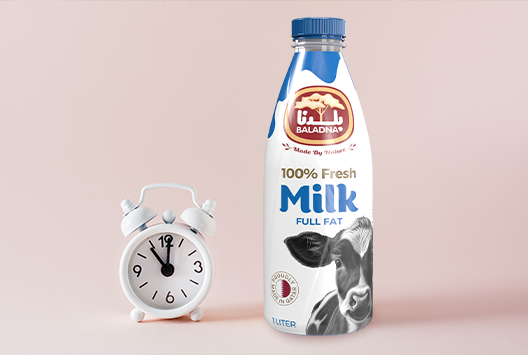
Here Are 4 Reasons Why Dairy Is Good for You
Are you ready to dive into the deliciously nutritious world of dairy? Get your spoons and straws ready because we are about to embark on a tour of the health benefits that dairy has to offer.
From yoghurt and ayran to milk and cheese, there's a whole barn-load of goodness that we often take for granted. So why don't you join us as we milk this topic for all it's worth, and uncover the secrets that make dairy products not just tasty, but amazing for our health too!
1. Calcium: The ultimate cheerleader for your bones
You've probably heard it a thousand times before, but we'll say it again: calcium is vital for strong bones and teeth. And when it comes to calcium, dairy is the MVP. A single glass of milk contains around 300 mg of calcium, which is about one-third of an adult's daily requirement.
Say goodbye to brittle bones and hello to a stronger, more robust skeleton. Plus, the calcium in dairy products is easily absorbed by the body, so you can be sure that your bones are reaping the full benefits. Remember the old saying, "milk does a body good”? Turns out it's true!
2. Protein: The whey to go for muscle growth and repair
Dairy products aren't just good for your bones; they are also packed with high-quality protein. This macronutrient is essential for muscle growth, repair, and maintenance, as well as keeping your hair, nails, and skin looking fabulous.
Milk, cheese, and yoghurt all contain a good amount of protein, but Greek yoghurt and cottage cheese are particularly protein-rich options.
And if you've been hitting the gym, you've probably heard about the wonders of whey protein. This fast-absorbing protein, derived from milk, can help you build muscle, lose fat, and improve your athletic performance.
3. Probiotics: The gut-feeling you can trust
If you're looking for a gut-friendly food, look no further than fermented dairy products like yoghurt and kefir. These delightful treats are packed with live bacteria and yeast, aka probiotics, which are essential for maintaining a healthy gut microbiome.
Probiotics can help with digestion, boost your immune system, and even improve your mood (yes, that's right—a happy belly equals a happy mind). So, don't be sour, embrace the probiotic power of dairy and watch your gut health flourish.
4. Overall improvement in health
The health benefits of dairy don't stop at calcium, protein, and probiotics. Consuming dairy products can help lower your risk of developing heart disease, type 2 diabetes, and high blood pressure.
Plus, dairy has been linked to improved weight management and a reduced risk of obesity. And for those who are lactose intolerant, don't worry, there are plenty of lactose-free dairy options available, so you can still reap the rewards of this nutritious food group.







